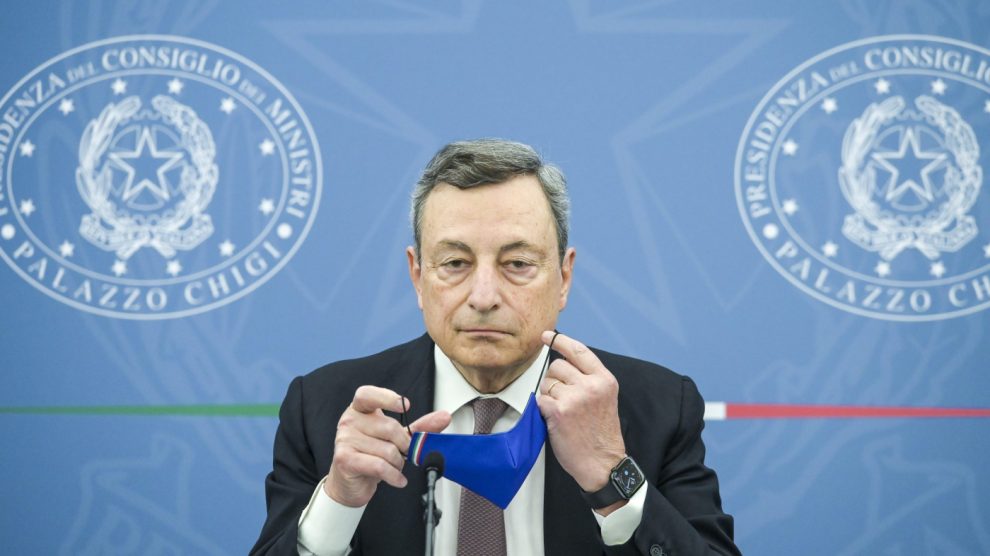One look at the past, with a tribute to the “heroes”, the 54 dead Italian soldiers. One at the present, with the evacuation of Afghan collaborators who have worked alongside Italy for 20 years. One at the future, with the need for extensive international collaboration, to be carried out within the framework of the G20, of which Italy holds the presidency this year.
In his first interview as Prime Minister, Mario Draghi drew a clear picture of the situation created by the return of the Taliban in Afghanistan – knowing he had to analyse what happened in order to try to take the best diplomatic course.
The expression of gratitude to the military, diplomats and aid workers was due. Above all, the Armed Forces were waiting for that message because of the disappointment expressed in the past days by several families of those who had fallen,lamenting the sacrifices they deemed useless.
According to Mr Draghi, however, their deaths were not in vain because the fallen “defended the values for which they were dispatched” – fundamental freedoms, women’s rights – and carried out anti-terrorism operations. In other words, they left “a deep mark” and “they are heroes” for all Italians.
It’s topical is to guarantee the safety of all those who have worked for Italy, those who only the military, journalists, diplomats or anyone who has worked in Afghanistan know. But the hard part comes after: what will happen? What is the Taliban’s real strategy for 2021?
Reflecting on the Afghan experience, as the Prime Minister said, it’s necessary not only to acknowledge that it all began on 9/11, but also understand the balance of the last twenty years and the “role that the West has played in all of the Arab world”. For Italy, the future will centre on the defense of fundamental and women’s rights, “to be pursued in all possible contexts”.
Hence the need for extensive international collaboration. Mr Draghi specifically mentioned China, Russia, Saudi Arabia and Turkey – countries that are increasing their influence both in the Asian and Mediterranean areas. The G20 is the right place to start that collaboration. There will be a G7 meeting shortly, and a G20 Summit at the end of August dedicated to women.
Mr Draghi was cristalline in saying that Europe will prove itself worthy, beginning with the refugee welcoming and security initiatives he spoke of with German Chancellor Angela Merkel. All those who have collaborated with European countries, and those who have put their lives on the line for the defence of fundamental freedoms will be welcome, all while “preventing terrorist infiltrations.”
No mention of the refugees who are fleeing Afghanistan and who may be heading to Europe, especially along the Balkan route. A potentially explosive issue that requires the widest international collaboration.




